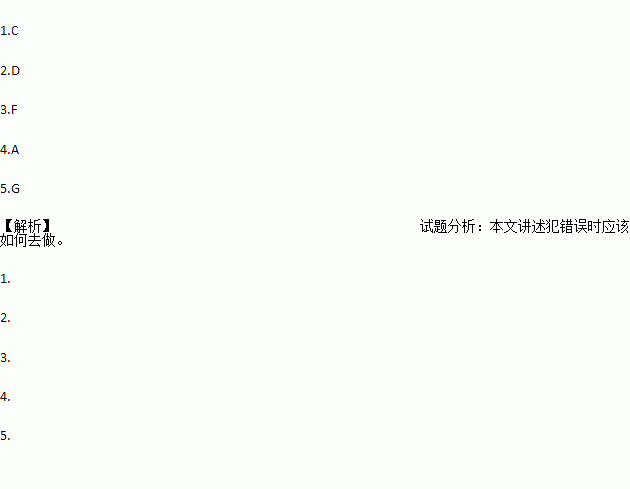题目内容
根据短文内容,从短文后的选项中选出能填入空白处的最佳选项。选项中有两项为多余选项。
As is known to us all, everyone can make mistakes. But don’t worry about it. The following is what we should do when we make mistakes.
●Just admit (承认) it. Don’t think that our mistakes are caused by others. 1. Don’t blame other people, and don’t cheat ourselves, either.
●2. In order to stop the problem from getting worse, we should act quickly to solve it. If we don’t act and deal with the problem quickly, it’ll only make us feel more stressed. Also it is necessary to make a plan of action and correct the mistake according to it. 3.
●4. Those who have made the most mistakes can get an A, for they are the ones who have learned the most. The more we learn from our mistakes, the cleverer we are.
●Think about what we can learn from our mistakes. What caused us to make the mistake?5. When we act with a method to get a good result, do it that way next time. If we don’t, we should stop, think about it, change it and try again.
A. Solve it at once.
B. So be away from stress.
C. Don’t be afraid of failure.
D. So decide quickly and act.
E. Realize that making mistakes is the best way to learn.
F. How can we avoid making the same mistake in the future?
G. Be brave and face the fact that we have made the mistakes.

